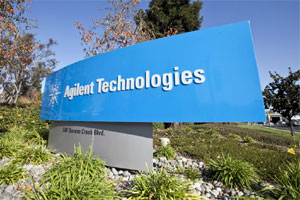Pathology laboratories that are customers of Dako should take notice of the coming change of ownership
Once again, a major player in histology and anatomic pathology tissue processing has been acquired. Yesterday it was announced that Agilent Technologies Inc. (NYSE: A), of Santa Clara, California, will pay $2.2 billion to acquire Dako, the cancer diagnostics company in Glostrup, Denmark. It is the largest acquisition in Agilent’s 13-year history.
The high price paid for Dako is just the latest confirmation that Wall Street investors consider molecular diagnostics and anatomic pathology to be a high-growth, profitable sector of laboratory medicine. With 2010 revenues of $340 million, Agilent will pay $2.2 billion, which is a 5.8 times multiple of Dako’s annual revenue.
Pathologists and clinical laboratory managers following the histopathology market will recall that Ventana Medical Systems, Inc., was acquired by Roche Holding AG (RHHBY) in February, 2008. The purchase price was approximately $3.4 billion, representing a multiple of 10.2 times Ventana’s 2007 revenue of about $290 million.
Agilent’s Purchase of Dako Helps it in IHC Market
Agilent is probably best known to the medical laboratory profession as a manufacturer of measurement systems that include liquid chromatography, mass spectrometry, microarray, polymerase chain reaction instrumentation, bioreagents, lab automation and robotics, electrophoresis, software and informatics, and nuclear magnetic resonance, and magnetic resonance imaging systems. Agilent was formed in 1999 when it was split off from Hewlett-Packard Co. Since then it has been growing its presence in the diagnostics business.
Founded in 1966, Dako is a division of EQT, a private equity group in Stockholm, Sweden. Dako sells reagents and instruments for cancer diagnosis to pathology laboratories in more than 100 countries. About 85% of its 2010 annual revenue of about $340 million came from its anatomic pathology business, the company said. Immunohistochemistry is its largest business area in terms of contributions to revenue, including income from diagnostics and special stains. The other 15% of its revenue comes from reagent sales.

Agilent Technologies’ willingness to pay $2.2 billion for Dako is powerful evidence that professional investors continue to like the future prospects in anatomic pathology. Agilent is expected to complete the purchase within 60 days. (Photo copyright Bloomberg.com.)
Agilent expects Dako to generate $373 million in revenue in fiscal 2013 and have $68 million in operating profit with an 18% operating margin, Agilent said. Pending regulatory approvals, the deal is expected to close in 60 days. The acquisition will immediately add to Agilent’s adjusted earnings, reported Reuters. Agilent acquired six companies last year and may still be interested to buying more businesses, Reuters said.
Dako Considered Attractive Asset in Tissue Diagnostics
Reuters report that Cowen analyst Doug Schenkel said of the acquisition, “Although, the valuation looks steep, strategically this deal could make sense as Dako is considered an attractive asset in tissue diagnostics.”
Agilent’s life sciences business brought in about a third of its 2011 revenue of $5.58 billion. Now that Agilent is in the histopathology business, it is competing with Milestone Medical Technologies Inc. in Kalamazoo, Michigan, Ventana Medical Systems Inc. in Tucson, Arizona, and Sakura Finetek USA Inc. in Torrance, California.
In recent years, Dako has developed agreements with Philips and Omnyx, as reported in Dark Daily. (See “Dako Announces Digital Pathology Agreements with Philips and Omnyx,” July 22, 2010.)
It is interesting to speculate that Agilent—known for its measuring instruments—recognizes the need to have proprietary technology in tissue processing and analysis. Many pathologists with deep experience in molecular diagnostics have observed that clinical laboratory testing is likely to see a convergence of different technologies as medical laboratory scientists tease out the secrets of proteins, RNA, and DNA from a patient specimen.
Accept that premise, and Agilent’s addition of Dako’s tissue processing and immunohistochemistry (IHC) technologies can be considered useful additions to the company’s expanding portfolio of measuring instruments and diagnostic systems.
—By Joseph Burns
Related Information:
Agilent to buy Denmark’s Dako for $2.2 billion
Agilent Buys Dako For $2.2 Billion, Biggest Deal Ever
Agilent to Acquire Dako for $2.2 Billion
Roche Announces $3 Billion Offer to Purchase Ventana Medical Systems
Roche Fuels the Digital Pathology “Gold Rush” by Paying $100 Million to Acquire BioImagene



